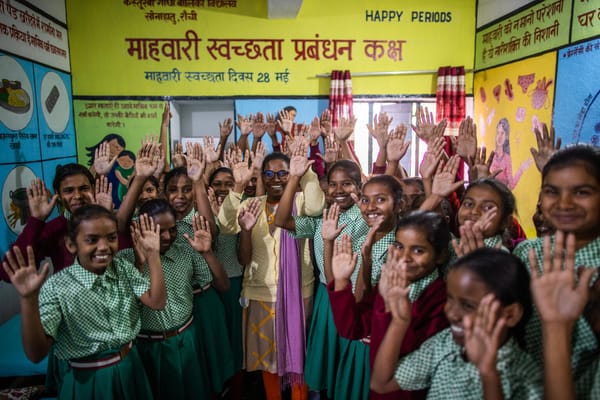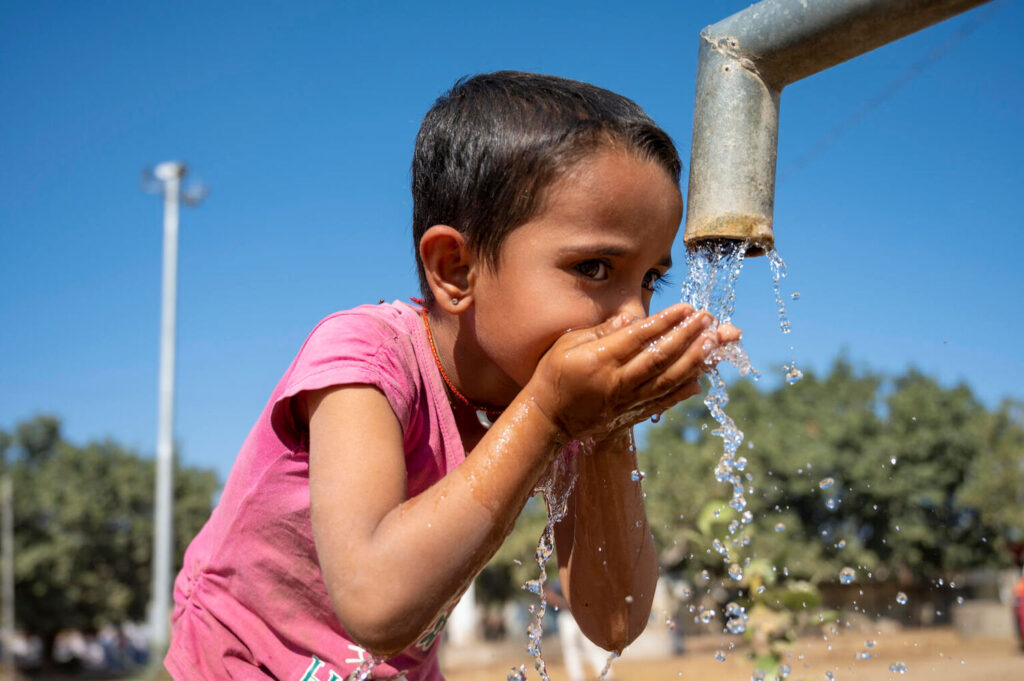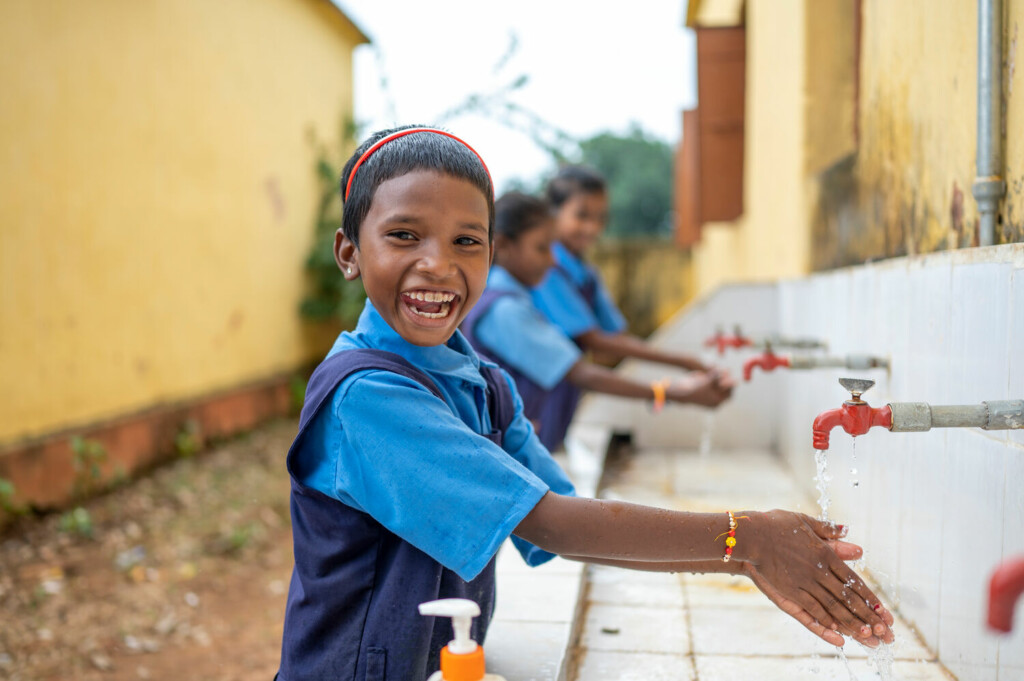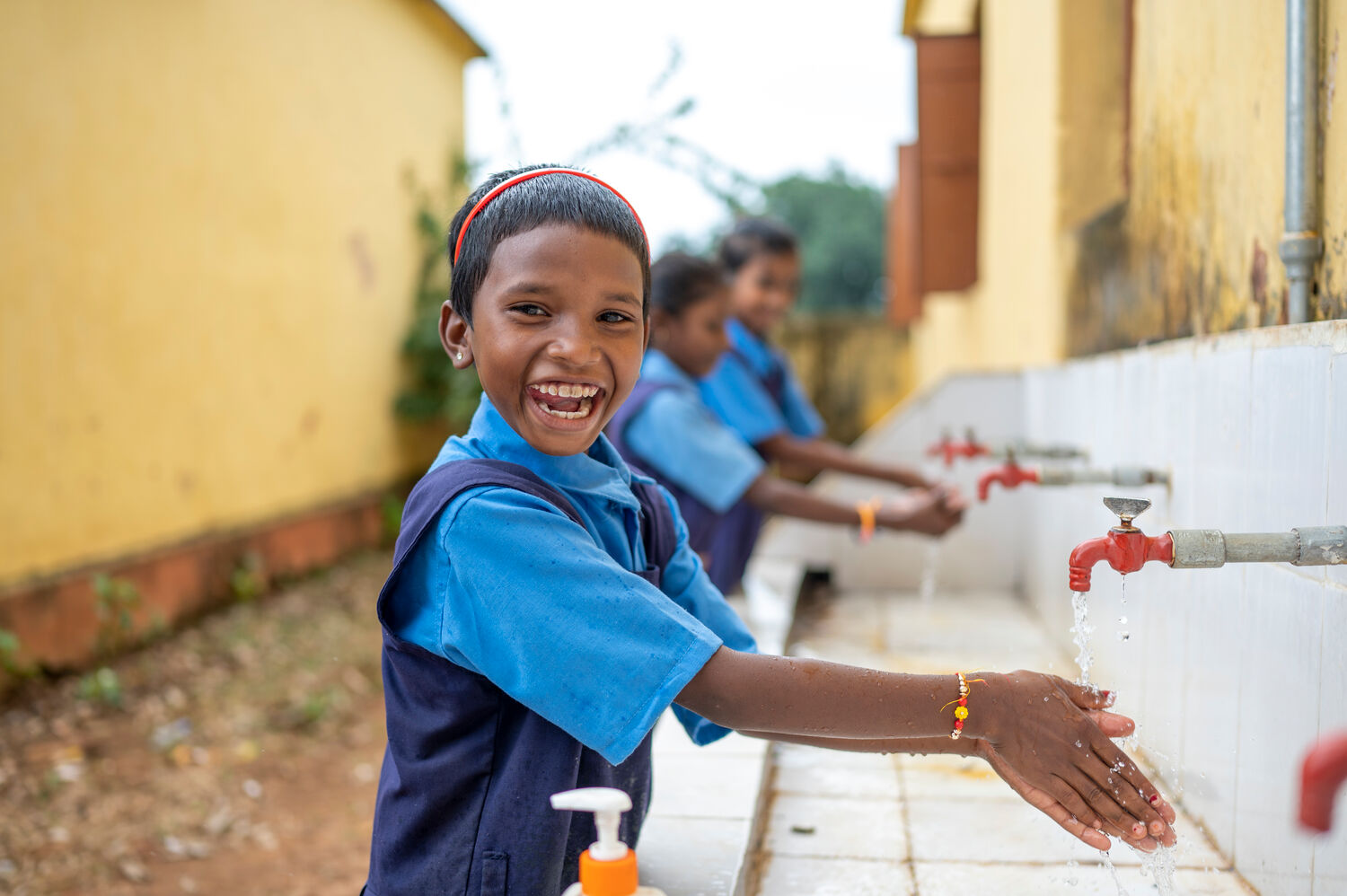
Improving hygiene in India: Supporting UNICEF’s impactful initiatives
Since 2007, Lindström has been one of the donors to UNICEF Finland. At the core of its support has been involvement in Water, Sanitation and Hygiene (WASH) projects across India. By uniting governmental and non-governmental organisations, the programme aims to provide clean water, child friendly toilets, and better hygiene in India.
Lindström and other donors support for UNICEF in the India WASH programme includes initiatives for schools, healthcare facilities, and menstrual hygiene management (MHM). These efforts lead to better health, improved well-being, and greater dignity for everyone, especially India’s youth.
WASH in schools: empowering communities for health and education
In a world where education opens doors to better futures, the well-being of children should be a top priority. UNICEF and other India WASH organisations are working to ensure every child can go to school in a safe and healthy environment. They are helping schools become cleaner and more hygienic by promoting handwashing, managing waste, ensuring safe drinking water and clean bathrooms, and more.
Thanks to the determination and hard work of children, teachers, and local communities, they are having success. Some 98,530 community-level service providers have received training on preventing and controlling infections. Furthermore, UNICEF and the Ministry of Education worked together to create and launch a national WASH training kit. This kit contains a lot of materials and resources to teach schools and communities about WASH practices. Finally, 23,075 schools supported school sanitation action plans.
When students have safe water, clean toilets, and learn about hygiene, they get sick less often and can go to school regularly. Large-scale training efforts have resulted in schools becoming places where both learning, and health can thrive.
Anupam Chakrabarty, Senior Vice President of Lindström Group says: “I have been fortunate enough to visit some of the places where we have this in schools – for example, in the rural areas where the WASH program is working. It makes your day a bright one when you manage to visit.”
The impact of WASH initiatives extends beyond the classroom. They are also important in other places, with healthcare facilities being one of the most important.
WASH in healthcare facilities
When it comes to keeping the public healthy, healthcare facilities naturally play a vital role. UNICEF understands this and has joined forces with the National Programme for Climate Change and Human Health (NPCCHH). Their aim is to help states create healthcare facilities that are risk-informed and climate-resilient.
Furthermore, public healthcare facilities are increasingly implementing good hygiene and cleanliness practices. Hundreds of these facilities have received Kayakalp certification, which shows they meet high standards for hygiene, cleanliness, and sanitation in India. In Bihar alone, 1,750 healthcare facilities were assessed for Kayakalp, with 235 of them gaining certification.
As healthcare facilities improve their cleanliness and hygiene practices, their positive impact goes beyond the hospital walls. They affect a community’s overall health and well-being, especially for children and those most at risk.
The efforts of the various organisations to improve health outcomes can also be seen in Menstrual Hygiene Management (MHM) initiatives.
Empowering communities through menstrual hygiene management (MHM)
In India, there are many entrenched beliefs and taboos surrounding menstruation. The stigma associated with menstruation prevents girls from receiving proper information, limits access to sanitary products and contributes to social and health challenges. UNICEF and its partners are working to change this through menstrual hygiene training. By collaborating with teachers, students and young changemakers, they are helping to improve well-being, especially among girls and young women.
This collaborative effort uses various methods to promote menstrual hygiene. It includes direct training, awareness campaigns, community engagement and support for menstrual hygiene practices. It covers important areas like promoting the use of sanitary products, ensuring proper disposal of menstrual waste, and challenging taboos and misconceptions surrounding menstruation.
The results have been impressive, reaching millions of people across India:
- On Global Menstrual Hygiene Day 2022, around 12 million people learned about MHM through various media, celebrity and public events.
- In Gujarat, 7,000 teachers received menstrual hygiene training. This training didn’t stop with teachers; it reached 3.2 million adolescents as well.
- Several states, like Bihar, launched comprehensive MHM plans. The Jeevika Self-Help Groups in Bihar, which reached 12 million rural women, played a vital role in spreading MHM information and practices at the community level.
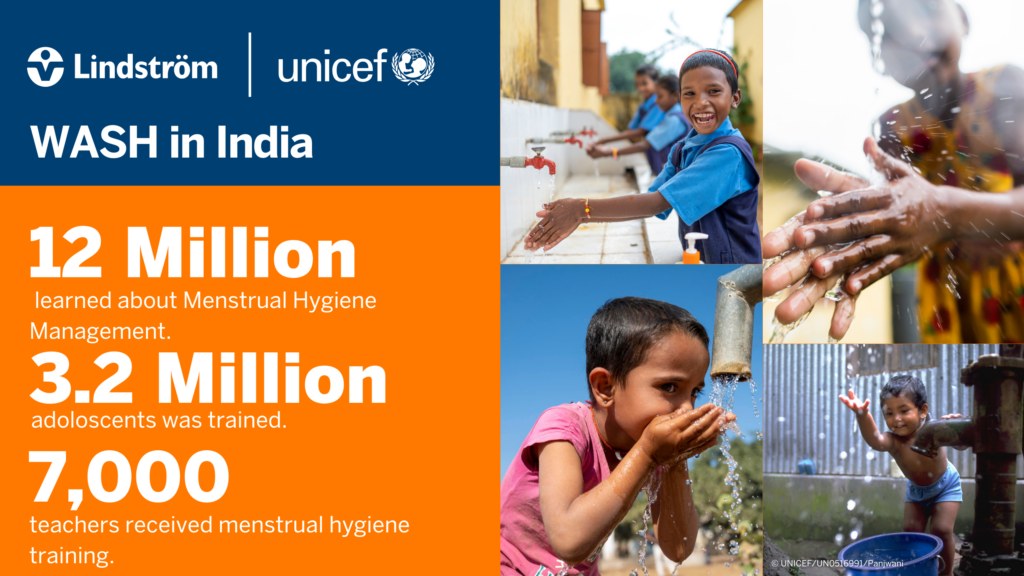
But a look beyond the numbers reveals inspiring, personal accounts of how UNICEF is empowering women in Northern India through MHM training.
Empowering women in Northern India to redefine menstrual health
In Uttar Pradesh, young women like Radhika, Aarti and Pragya are challenging long-held customs and myths surrounding menstruation. Despite facing taboos and lacking proper facilities, they have emerged as peer educators after receiving MHM training. With newfound knowledge and confidence, they are working to improve menstrual health in their communities.
For Radhika, her journey began at 14 when she didn’t receive any guidance on menstruation and had to use old rags handed to her by her mother. Unaware of her body’s changes, and living in a home without a bathroom or boundary wall, she faced silent struggles. However, since attending MHM training sessions, she has become a strong advocate of menstrual hygiene, promoting sanitary napkins and safe disposal methods.
Aarti, another peer educator, focuses on menstrual waste management, aiming to prevent sanitation hazards. She empowers young girls with knowledge about their bodies and challenges old beliefs.
Similarly, Pragya works tirelessly to break stigmas around period blood and advocates for proper waste disposal systems. She even encouraged local priests to establish suitable waste disposal systems for women residing in the temples.
These determined young women are driving social change and transforming attitudes towards menstruation in their communities. Their work is challenging deep-rooted beliefs and creating a positive impact on the menstrual health of women.
Sustaining progress: Lindström and UNICEF Finland’s ongoing efforts
The importance of good WASH practices in schools, healthcare facilities and menstrual hygiene management cannot be overstated. They lead to improved education, public health, and individual dignity.
Juha Laurio, CEO of Lindström Group, says: “We are proud to be one of the donors to UNICEF as they strive to improve sanitation and hygiene in Indian schools and hospitals, as well as provide training in menstrual health matters. UNICEF has a proven and admirable track record of helping to improve the health and well-being of people in India, especially young people and those most at risk.”
The ongoing commitment of UNICEF will surely lead to more robust institutions and flourishing communities.


